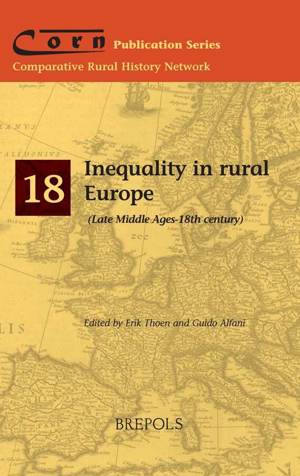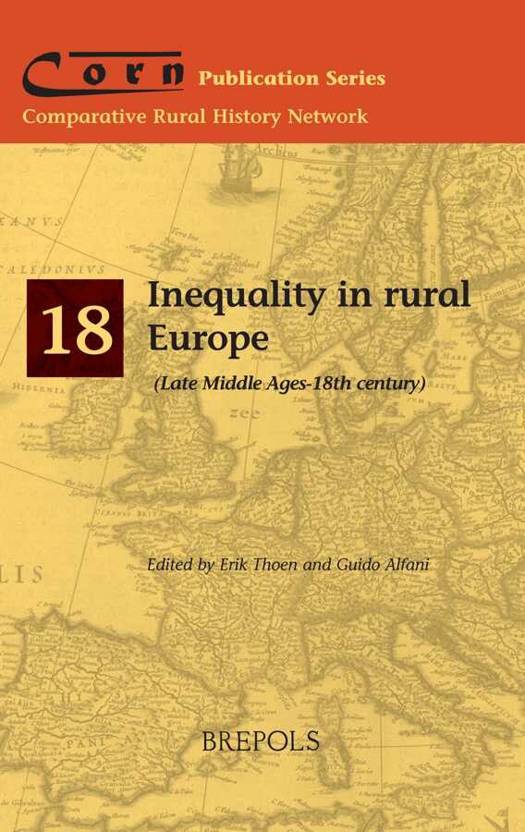
- Afhalen na 1 uur in een winkel met voorraad
- Gratis thuislevering in België vanaf € 30
- Ruim aanbod met 7 miljoen producten
- Afhalen na 1 uur in een winkel met voorraad
- Gratis thuislevering in België vanaf € 30
- Ruim aanbod met 7 miljoen producten
Zoeken
€ 73,14
+ 146 punten
Omschrijving
Studies dealing with inequality in European societies have multiplied in recent years. It has now become clear that pressing questions about the historical trends showing both income and wealth inequality as well as the factors leading to an increase or drop of inequality over time, could be answered only by taking into account preindustrial times. Therefore, this book deals with inequality in the long-run, covering and comparing a very long time span, starting its investigations in the later middle ages and ending before the nineteenth century, the period that marks the beginning of most available studies. Hitherto, urban distribution of income and wealth is much better known than rural inequality. This book intends to reduce this gap in knowledge, bringing rural inequality to the fore of research. Since at least until the nineteenth century the majority of people were country men, looking at the rural areas is crucial when trying to identify the underlying causes of inequality trends in the long run of history. The book consists of nine original papers and deals with a variety of topics about inequality covering no less than eight different countries in Europe. The majority of the studies published in this book are the result of teamwork between European universities where a range of research centres are currently exploring different aspects of income and wealth inequality in preindustrial times.
Specificaties
Betrokkenen
- Auteur(s):
- Uitgeverij:
Inhoud
- Aantal bladzijden:
- 190
- Taal:
- Engels
Eigenschappen
- Productcode (EAN):
- 9782503590523
- Verschijningsdatum:
- 14/01/2021
- Uitvoering:
- Paperback
- Formaat:
- Trade paperback (VS)
- Afmetingen:
- 157 mm x 234 mm
- Gewicht:
- 385 g

Alleen bij Standaard Boekhandel
+ 146 punten op je klantenkaart van Standaard Boekhandel
Beoordelingen
We publiceren alleen reviews die voldoen aan de voorwaarden voor reviews. Bekijk onze voorwaarden voor reviews.











